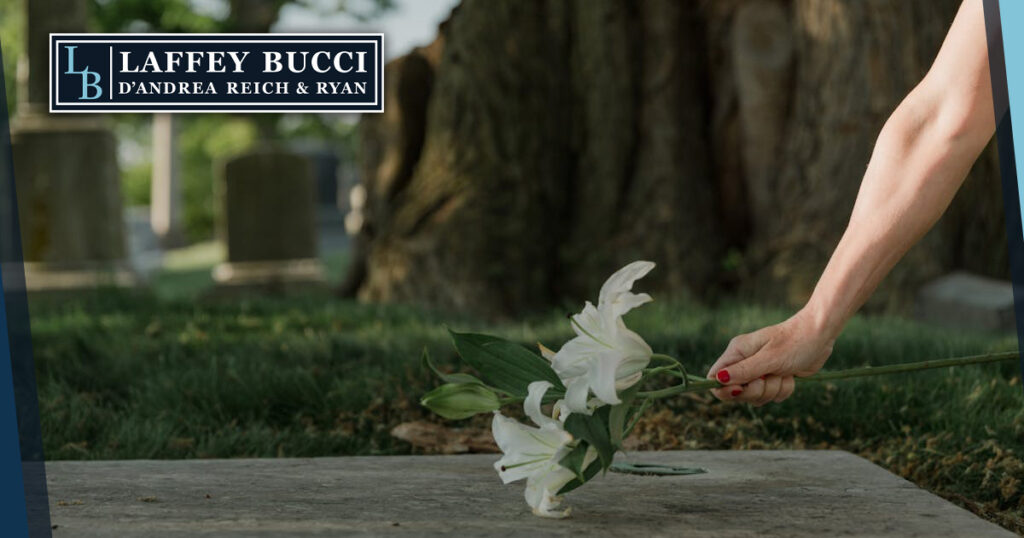Losing a loved one is devastating, especially when their death happens because of someone else’s negligence or wrongdoing.
In cases like these, a wrongful death lawsuit can provide surviving family members with financial compensation and a sense of justice. However, it’s important to understand who’s entitled to compensation in a wrongful death case to successfully navigate the legal process.
What Is a Wrongful Death Lawsuit?
Wrongful death lawsuits are legal actions that are brought against a person, group, or business whose negligence, recklessness, or intentional actions caused another person’s death.
These lawsuits aim to compensate the deceased’s survivors for their emotional and financial losses.
Many wrongful death claims arise from car accidents, medical malpractice, workplace incidents, or defective products.
Who Can File a Wrongful Death Lawsuit?
Every state has its own specific laws determining who can file a wrongful death lawsuit. In most cases, the right to bring such a claim is limited to close family members or the personal representative of the deceased’s estate. Typically, eligible individuals include:
- Spouses: Surviving spouses of wrongful death victims usually have the primary right to file these lawsuits. This is because they often suffer the most significant financial and emotional losses, including loss of companionship and income.
- Children: Biological and adopted children of the deceased may also file a claim, as financial compensation can help address the loss of parental guidance, emotional support, and future financial stability.
- Parents: If the deceased was unmarried and without children, surviving parents may file a wrongful death lawsuit. This is especially common in cases involving young, unmarried adults.
- Siblings or Other Relatives: In some states siblings, grandparents, or other close relatives can file wrongful death claims as well, especially if no immediate family members are available.
Types of Compensation Available
Compensation in a wrongful death lawsuit typically falls into two categories: economic and non-economic damages. These address the various losses suffered by the deceased’s family members and their estate.
- Economic Damages: These include tangible financial losses, like medical expenses incurred before death, funeral and burial costs, and lost wages or benefits the deceased would have earned had they lived.
- Non-Economic Damages: These refer to the less tangible losses, like emotional pain, suffering, loss of companionship, and the deceased’s guidance and care.
How Is Compensation Divided Among Family Members?
When multiple family members are entitled to compensation, how the damages are divided can vary.
Some states have laws that dictate specific percentages or shares based on the family member’s relationship to the deceased. In other cases, the court may decide what is fair distribution. Like when a surviving spouse might receive a larger share of the compensation than adult children because they had a greater financial dependence on the deceased.
Factors That Can Affect Eligibility
Many factors can affect who’s entitled to compensation in a wrongful death lawsuit, including:
- State Laws: Each state has unique statutes governing wrongful death claims, including who can file and receive compensation.
- Financial Dependence: As mentioned above, courts often consider the financial dependence of the claimant on the deceased when they award damages.
- Proof of Loss: Each claimant must show the amount of their losses with clear evidence like financial records, medical bills, and other receipts. The stronger this evidence is, the more significant the impact can be on the amount of compensation that’s awarded.
The Role of the Estate
In many cases, a representative of the deceased’s estate will be the one to file a wrongful death lawsuit on behalf of the family members. When this happens, the estate acts as a legal entity, handling the deceased’s financial matters, which includes distributing any compensation from the wrongful death settlement.
The estate’s role is vital in ensuring that all eligible parties get a fair share of the awarded damages.
Challenges in Wrongful Death Lawsuits
Wrongful death lawsuits can be emotionally charged and legally complicated. Family members often disagree over who should file the claim or how the compensation should be divided.
Proving negligence or liability can be challenging, especially in cases involving multiple defendants or disputed evidence. Working with an experienced wrongful death attorney can help navigate these challenges and maximize the likelihood of a successful outcome.
At Laffey Bucci D’Andrea Reich & Ryan, we understand that a wrongful death lawsuit can provide a desperately needed pathway for surviving family members to seek justice and financial support after losing a loved one.
Spouses, children, parents, and sometimes other relatives may be entitled to compensation from a wrongful death suit, depending on state laws and their relationship to the deceased. Understanding what types of damages are available and what factors can influence your eligibility is critical for pursuing a fair settlement.
By working with a qualified attorney, families can navigate this challenging process with clarity and confidence, ensuring their rights are protected and their loved one’s legacy is honored.
If you’ve lost a loved one and you suspect wrongful death, we can help.

